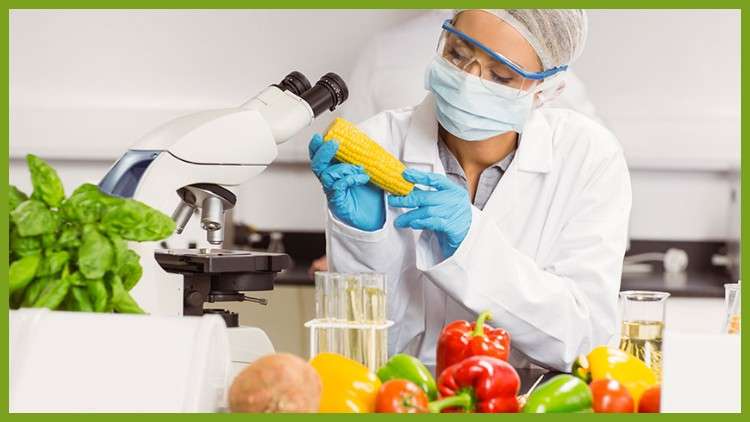
Your Step-by-Step Guide to Understanding and Implementing ISO 22000 Standards
What you will learn
Fundamentals of ISO 22000 standards
Key concepts and terminology in food safety management
How to implement a Food Safety Management System (FSMS)
Steps for operational planning and control
Understanding and managing prerequisite programs (PRPs)
Importance and methods of traceability in food safety
Developing emergency preparedness and response plans
Applying HACCP principles for hazard control
Conducting internal audits and management reviews
Continuous improvement strategies for FSMS
Ensuring compliance with ISO 22000 requirements
Why take this course?
Unlock the secrets to food safety with our comprehensive course, “ISO 22000: Food Safety Management Simplified For Beginners.” Designed for those new to the ISO 22000 standard, this course provides a step-by-step guide to understanding, implementing, and maintaining an effective Food Safety Management System (FSMS). Whether you’re a food safety professional, business owner, or quality manager, this course will equip you with the essential knowledge and practical skills to ensure food safety and compliance.
Module 1: Introduction to ISO 22000
- Lecture 1.1: What is ISO 22000?
- Understanding ISO 22000
- History and Development
- Lecture 1.2: Importance of ISO 22000
- Benefits for Organizations
- Benefits for Consumers
- Lecture 1.3: Key Concepts and Terms
- Food Safety Management System (FSMS)
- Terminology and Definitions
Module 2: ISO 22000 Requirements
- Lecture 2.1: Context of the Organization
- Understanding the Organization and Its Context
- Understanding the Needs and Expectations of Interested Parties
- Determining the Scope of the FSMS
- Lecture 2.2: Leadership
- Leadership and Commitment
- Food Safety Policy
- Organizational Roles, Responsibilities, and Authorities
- Lecture 2.3: Planning
- Actions to Address Risks and Opportunities
- Objectives of the FSMS and Planning to Achieve Them
- Planning of Changes
- Lecture 2.4: Support
- Resources
- Competence
- Awareness
- Communication
- Documented Information
- Lecture 2.5: Operation
- Operational Planning and Control
- Prerequisite Programs (PRPs)
- Traceability System
- Emergency Preparedness and Response
- Hazard Control: HACCP Principles
- Control of Externally Provided Processes, Products, or Services
- Lecture 2.6: Performance Evaluation
- Monitoring, Measurement, Analysis, and Evaluation
- Internal Audit
- Management Review
- Lecture 2.7: Improvement
- Nonconformity and Corrective Action
- Continual Improvement
- Update of the FSMS
Module 3: Implementation of ISO 22000
- Lecture 3.1: Preparing for Implementation
- Initial Gap Analysis
- Project Planning
- Lecture 3.2: Developing the FSMS
- Creating Policies and Objectives
- Documenting Processes and Procedures
- Lecture 3.3: Training and Awareness
- Employee Training Programs
- Creating Awareness about Food Safety
- Lecture 3.4: Implementing PRPs
- Establishing and Managing PRPs
- Examples of Common PRPs
- Lecture 3.5: HACCP Implementation
- Conducting Hazard Analysis
- Determining Critical Control Points (CCPs)
- Establishing Critical Limits, Monitoring, and Corrective Actions
Module 4: Certification Process
- Lecture 4.1: Preparing for Certification
- Selecting a Certification Body
- Pre-Certification Audit
- Lecture 4.2: The Certification Audit
- Stages of Certification Audit
- Common Pitfalls and How to Avoid Them
- Lecture 4.3: Maintaining Certification
- Surveillance Audits
- Recertification
Module 5: ISO 22000 and Other Standards
- Lecture 5.1: ISO 22000 vs. ISO 9001
- Comparing ISO 22000 and ISO 9001
- Integrating ISO 22000 with ISO 9001
- Lecture 5.2: ISO 22000 and ISO 14001
- Comparing ISO 22000 and ISO 14001
- Integrating ISO 22000 with ISO 14001
- Lecture 5.3: ISO 22000 and FSSC 22000
- Understanding FSSC 22000
- Comparing ISO 22000 and FSSC 22000
Module 6: Case Studies and Best Practices
- Lecture 6.1: Successful ISO 22000 Implementations
- Real-World Examples
- Lessons Learned
- Lecture 6.2: Best Practices for ISO 22000
- Tips and Techniques for Success
- Avoiding Common Mistakes
- Lecture 6.3: Continuous Improvement
- Staying Current with Updates
- Embracing Continuous Improvement
Module 7: Tools and Resources
- Lecture 7.1: Tools for ISO 22000 Implementation
- Software and Templates
- Documentation Tools
In this course, you’ll gain a clear understanding of the ISO 22000 standard, learn how to implement a Food Safety Management System (FSMS), and discover best practices for maintaining compliance and achieving certification. Each module is designed to build your knowledge and skills progressively, with practical examples and easy-to-follow explanations. Enroll now to start your journey towards mastering ISO 22000 and ensuring food safety excellence in your organization.